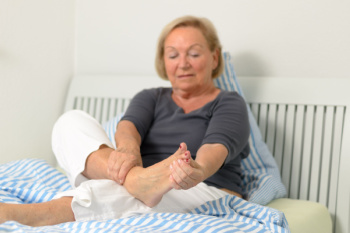Women and Gout
Tuesday, 05 March 2024 00:00
Gout, long considered to affect mostly men, is increasingly recognized as a concern for women as well. In fact, gout can affect anyone, regardless of gender. This painful form of arthritis occurs when uric acid crystals accumulate in the joints, leading to inflammation and intense discomfort. Women may experience gout during menopause, due to hormonal changes that affect uric acid levels. Additionally, lifestyle factors, such as diet, obesity, alcohol consumption, and certain medications, can contribute to gout risk in women. Although women are less likely to develop gout than men, their risk increases with age and other health conditions such as hypertension, diabetes, and kidney disease. Recognizing that gout can affect women is essential for timely diagnosis and management. With proper lifestyle modifications, dietary changes, and medication, women can effectively manage gout and minimize its impact on their quality of life. If you suffer from gout flare-ups, it is suggested that you consult a podiatrist who can assess the situation and help manage the condition.
Gout is a painful condition that can be treated. If you are seeking treatment, contact Naim G. Shaheed, DPM from Ankle and Foot Centers of Georgia. Our doctor will treat your foot and ankle needs.
What Is Gout?
Gout is a form of arthritis that is characterized by sudden, severe attacks of pain, redness, and tenderness in the joints. The condition usually affects the joint at the base of the big toe. A gout attack can occur at any random time, such as the middle of the night while you are asleep.
Symptoms
- Intense Joint Pain - Usually around the large joint of your big toe, and it most severe within the first four to twelve hours
- Lingering Discomfort - Joint discomfort may last from a few days to a few weeks
- Inflammation and Redness -Affected joints may become swollen, tender, warm and red
- Limited Range of Motion - May experience a decrease in joint mobility
Risk Factors
- Genetics - If family members have gout, you’re more likely to have it
- Medications - Diuretic medications can raise uric acid levels
- Gender/Age - Gout is more common in men until the age of 60. It is believed that estrogen protects women until that point
- Diet - Eating red meat and shellfish increases your risk
- Alcohol - Having more than two alcoholic drinks per day increases your risk
- Obesity - Obese people are at a higher risk for gout
Prior to visiting your podiatrist to receive treatment for gout, there are a few things you should do beforehand. If you have gout you should write down your symptoms--including when they started and how often you experience them, important medical information you may have, and any questions you may have. Writing down these three things will help your podiatrist in assessing your specific situation so that he or she may provide the best route of treatment for you.
If you have any questions, please feel free to contact one of our offices located in Lithonia/Stonecrest and Emory/Midtown, GA . We offer the newest diagnostic and treatment technologies for all your foot care needs.








